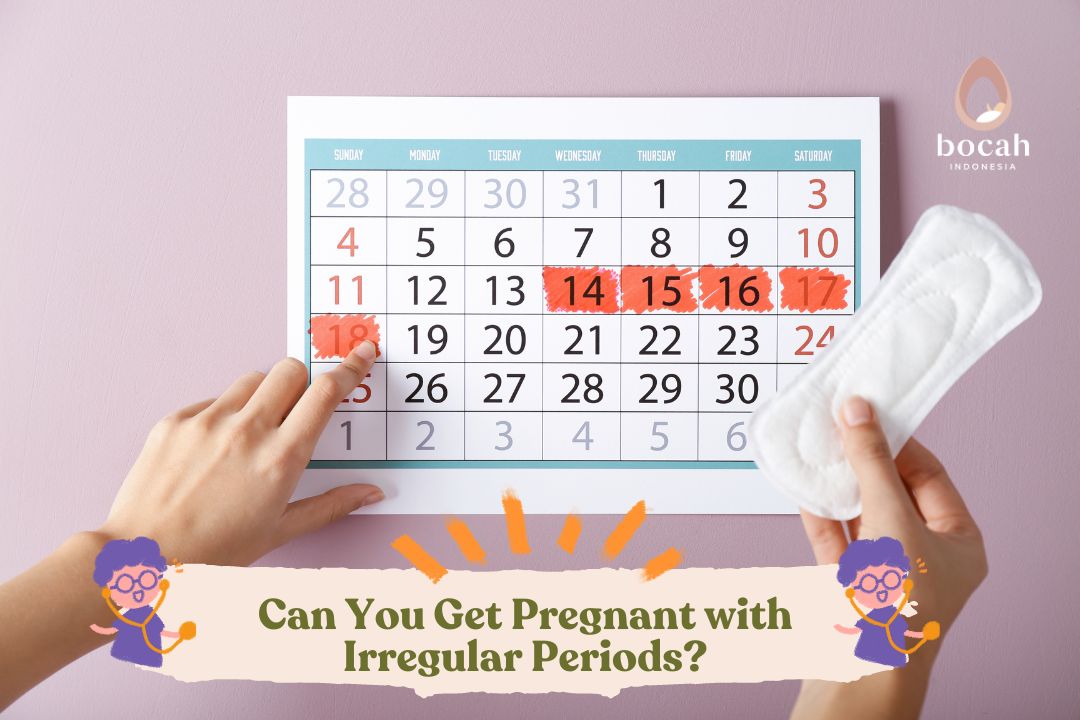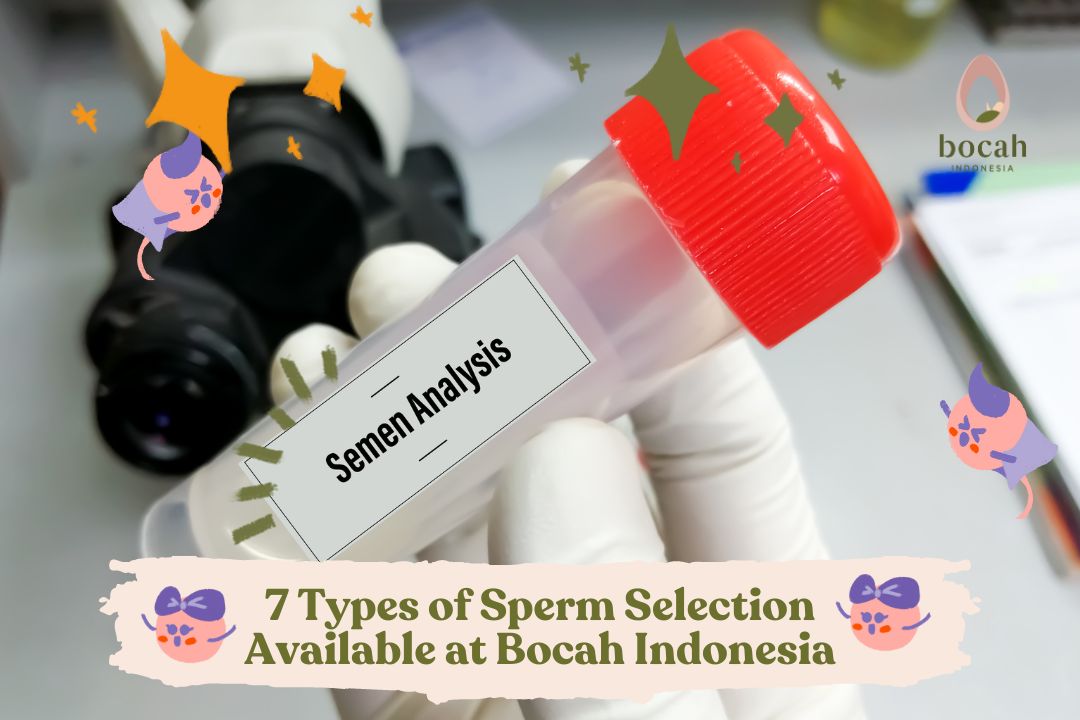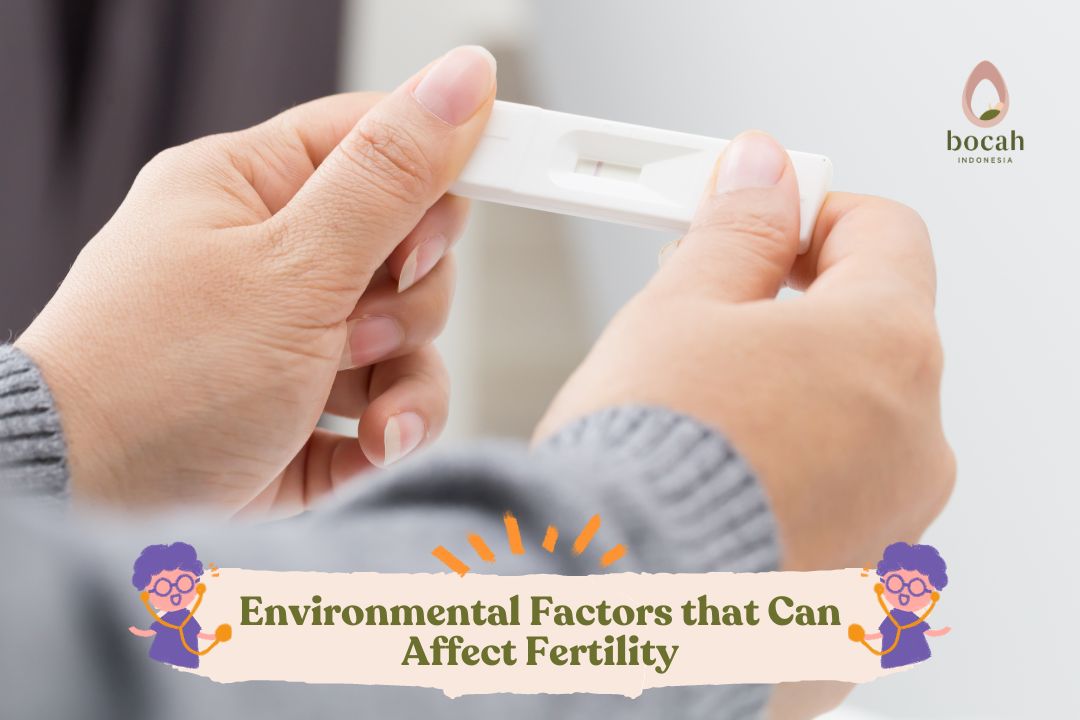Can You Get Pregnant with Irregular Periods?

Irregular periods don’t always mean difficulty getting pregnant.
Not all women have regular menstrual cycles. Some may have periods on a predictable schedule, every 28 days for example, while others experience irregular and unpredictable periods.
Irregular periods can sometimes be frustrating for women, especially those trying to conceive. However, the good news is that having this condition doesn’t necessarily mean a woman is infertile or will struggle to get pregnant.
What Does Irregular Period Mean?
Periods are considered irregular if the menstrual cycle is inconsistent, meaning they can come early or late. The normal menstrual cycle typically occurs every 21 to 35 days. And the duration of normal menstrual bleeding is usually between 2 to 7 days.
Irregular periods have certain characteristics, but they are usually related to how often a woman experiences periods and the severity of symptoms.
Tanya Mincah tentang Promil?
A woman is suspected to have irregular periods if:
- The menstrual cycle is less than 21 days or more than 35 days apart
- The length of the cycle varies significantly
- Menstrual bleeding lasts more than 7 days
- No periods for several consecutive months
Many women with irregular periods also experience:
- Heavy bleeding requiring changing sanitary pads more than once per hour
- Severe lower abdominal pain or cramps, especially ones that interfere with daily activities
- Feeling lightheaded, weak, or dizzy during or after periods
- Passing blood clots larger than a quarter of the total volume of menstrual blood
It’s important to note that at certain times in a woman’s life, periods may become irregular. For example, in the first 3-5 years after a girl first starts menstruating. Or, during perimenopause—around the 50s—where menstrual cycles become less frequent and irregular.
Causes of Irregular Periods
Irregular periods may be a normal occurrence for a woman, or it may be something new. Whatever the case, there are many factors that can cause irregular periods. It’s common for menstrual cycles to change due to illness, physical or psychological stress, and travel. Women may also experience irregular periods for a while after giving birth or breastfeeding, or even after stopping the use of contraception methods.
Some other causes of irregular periods include:
- Polycystic Ovary Syndrome (PCOS). This is a condition caused by hormonal imbalance, resulting in irregular menstrual cycles. Approximately 1 in 5 women experience it, and it is the most common cause of female infertility. Women with PCOS do not ovulate every month, resulting in infrequent menstrual cycles. PCOS can also cause heavy bleeding during periods.
- Pelvic Inflammatory Disease (PID). This is an infection that occurs when bacteria from the vagina spread to a woman’s reproductive organs through the cervix. PID is often caused by sexually transmitted infections such as chlamydia, gonorrhea, or mycoplasma.
- Uterine Disorders. Uterine polyps and fibroids are two types of benign tumors that can occur inside the uterus. Both can cause abnormal menstrual bleeding patterns and disrupt ovulation.
- Hyperprolactinemia. This condition is caused by a disorder in the brain’s pituitary gland, which produces the hormone prolactin. Prolactin is responsible for stimulating the production of Breast Milk. Hyperprolactinemia occurs when prolactin levels increase even though a woman is not pregnant or breastfeeding. Very high levels of prolactin can cause irregular or even absent periods.
- Weight Changes. Significant weight gain or loss can cause changes in the menstrual cycle. Eating disorders such as anorexia or bulimia can also disrupt normal menstrual cycles.
- Excessive Exercise. Even if not an athlete, a woman who exercises much more intensely than usual may experience irregular periods. This is because hormones produced as a result of excessive exercise can disrupt the release of hormones that trigger menstruation.
- Certain Medications. Some drugs such as blood thinners, antidepressants, and antiepileptic drugs, can alter the menstrual cycle or cause spotting.
When to See a Doctor for Irregular Periods?
In general, consult a doctor if:
- Periods have stopped for more than 90 days or 3 months, and it’s confirmed not due to pregnancy
- Periods become irregular after previously being regular
- The duration of menstrual bleeding is more than 7 days
- Menstrual bleeding is heavier than usual, requiring changing pads every 1-2 hours
- Experiencing severe abdominal pain during periods
- Experiencing irregular periods along with symptoms such as weight gain, fatigue, facial hair growth, and dry or oily skin
- Having irregular periods and difficulty getting pregnant
How to Manage Irregular Periods
Treatment may not always be necessary to manage irregular periods. Sometimes, birth control pills can regulate the menstrual cycle. Birth control pills or contraceptives containing progestin can reduce heavy bleeding during periods and alleviate menstrual cramps. However, actual treatment, if needed, depends on the cause. Therefore, the initial step in managing irregular periods is to consult and undergo a comprehensive evaluation with a gynecologist.
Increasing Chances of Pregnancy with Irregular Periods
While irregular periods don’t prevent a woman from getting pregnant, achieving pregnancy can be more challenging and it also depends on the cause. Irregular and unpredictable periods make it difficult for women to determine their ovulation time during the fertile window. In this case, monitoring menstrual and ovulation cycles becomes crucial.
There are several ways to track ovulation, including basal body temperature monitoring, ovulation prediction kits, and cervical mucus monitoring.
- Basal body temperature. Basal body temperature is monitored every morning using a thermometer. This temperature is best checked immediately upon waking up before starting any activities. During the fertile window, the body temperature can increase by about 1oC. This increase in temperature, mainly from the post-ovulation progesterone hormone, indicates that the egg has been released. Note down to determine your daily average body temperature and when the temperature increase occurs. The best time for intercourse is 2 to 3 days before the rise in body temperature.
- Ovulation prediction kits. Ovulation prediction kits (OPKs) are accurate tests to determine a woman’s fertile period. These kits detect the surge of luteinizing hormone (LH) just before ovulation occurs. To use them, you simply need to dip the test strip into urine. Using these tests can be costly if used over the long term and may be less beneficial if periods are irregular and the initial LH levels are already elevated.
- Changes in cervical mucus. Monitoring cervical mucus involves observing the mucus that comes out of the vagina throughout the menstrual cycle. The appearance and texture of mucus will change as ovulation approaches. Cervical mucus may be absent during the non-fertile period. As ovulation approaches, cervical mucus may appear with a thick, creamy texture, possibly white or yellowish, and sticky. At the peak of fertility (just before ovulation), cervical mucus becomes thinner, clearer (transparent), and slippery. Approximately similar in color and consistency to raw egg whites. The mucus is very elastic in the sense that it can stretch when pulled and not break. After ovulation, the amount of cervical mucus decreases, and its consistency becomes thicker and cloudy. The time when the most cervical mucus comes out is when ovulation is occurring.
If the above methods are found to be difficult to perform, the chances of pregnancy can be increased by regularly engaging in unprotected intercourse every 2-3 days throughout the menstrual cycle.
Is Medication Needed for Ovulation Induction?
Monitoring ovulation with irregular periods is not easy. Ovulation can occur, but it is very difficult to predict. Therefore, if pregnancy is difficult to achieve, doctors may recommend the use of medications or hormones to trigger ovulation. Through this method, the timing of ovulation can be more accurately predicted, allowing couples to optimize their chances of achieving pregnancy naturally.
The types of drugs used for ovulation induction include:
- Letrozole or clomiphene citrate. Both are oral tablets, usually combined with injectable drugs, to help stimulate ovulation. Both of these drugs stimulate the production of hormones released by the pituitary gland in the brain, which play a role in maturing the egg and preparing it for ovulation.
- Injection of hCG hormone (human chorionic gonadotropin). This is an ovulation-triggering injection, allowing for determining the best time for intercourse or artificial insemination, or for the process of egg retrieval (ovum pick up) in IVF programs.
Don’t Forget to Adopt a Healthy Lifestyle!
Not all causes of irregular periods need to be treated. In many cases, this condition can be improved through the following healthy lifestyle habits:
- Increase (decrease) exercise intensity. Basically, physical activity should be done every day, for at least 30 minutes a day
- Consume a balanced and consciously choose healthier foods
- Avoid smoking and excessive alcohol consumption
- Have a regular and sufficient sleep pattern
- Able to manage stress
- Seek a positive and supportive social or community environment
A healthy lifestyle has many benefits, one of which is reducing stress levels, making periods more regular.
Conclusion
For those who desire pregnancy or not, it is important to know the causes of irregular periods. The first step is to record menstrual cycles, so you can determine what is considered “normal” and what is not. If there are deviations from the usual pattern, or if there are concerns about your menstrual cycle pattern, consult a doctor promptly.
This article has been medically reviewed by Dr. Fiona Amelia
Source:
- Holesh JE, Bass AN, Lord M. Physiology, Ovulation. [Updated 2021 May 9]. In: StatPearls [Internet]. Treasure Island (FL): StatPearls Publishing; 2021 Jan-. Available from: https://www.ncbi.nlm.nih.gov/books/NBK441996/
- Mayo Clinic. [Last updated April 22, 2023]. Menstrual cycle: What’s normal, what’s not. URL: https://www.mayoclinic.org/healthy-lifestyle/womens-health/in-depth/menstrual-cycle/art-20047186#:~:text=Menstrual%20cycle%20irregularities%20can%20have,of%20your%20period%20after%20pregnancy.
- Steward K, Raja A. Physiology, Ovulation And Basal Body Temperature. [Updated 2021 Jul 22]. In: StatPearls [Internet]. Treasure Island (FL): StatPearls Publishing; 2021 Jan-. Available from: https://www.ncbi.nlm.nih.gov/books/NBK546686/
- Welt CK. Evaluation of the menstrual cycle and timing of ovulation. In: UpToDate, Post, TW (Ed), UpToDate, Waltham, MA, 2024.
- Welt CK. Physiology of the normal menstrual cycle. In: UpToDate, Post, TW (Ed), UpToDate, Waltham, MA, 2024.










